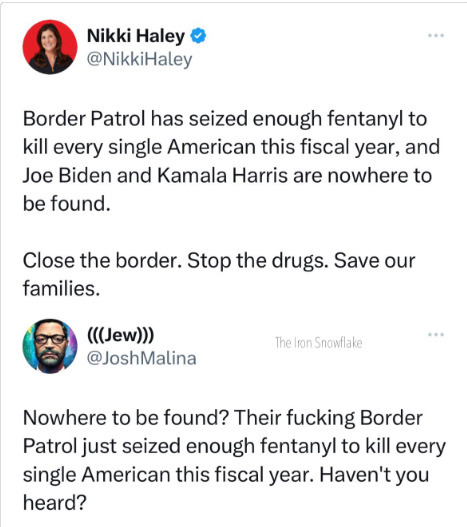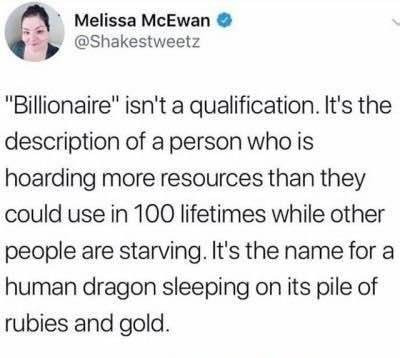Text
Mosquito-borne diseases are spreading across the globe, and particularly in Europe, due to climate breakdown, an expert has said.
The insects spread illnesses such as malaria and dengue fever, the prevalences of which have hugely increased over the past 80 years as global heating has given them the warmer, more humid conditions they thrive in.
Prof Rachel Lowe who leads the global health resilience group at the Barcelona Supercomputing Center in Spain, has warned that mosquito-borne disease outbreaks are set to spread across currently unaffected parts of northern Europe, Asia, North America and Australia over the next few decades.
She is due to give a presentation at the global congress of the European Society of Clinical Microbiology and Infectious Diseases in Barcelona to warn that the world must be prepared for a sharp uptick in these diseases.
“Global warming due to climate change means that the disease vectors that carry and spread malaria and dengue [fever] can find a home in more regions, with outbreaks occurring in areas where people are likely to be immunologically naive and public health systems unprepared,” Lowe said.
continue reading
Watch how quickly a decent malaria vaccine is developed.
2 notes
·
View notes
Text
🚨 Students at Harvard University launched an encampment in support of Gaza in Harvard Yard moments ago, calling for an end to Harvard's moral and material complicity in the ongoing genocide of the Palestinian people.
Harvard has invested over $200 million of its over $51 billion endowment in companies with ties to zionist settlements in the West Bank, while most of its investments to the zionist entity are kept secret.
The students are demanding financial transparency regarding investments related to the zionist entity, as well as genocide and occupation in Palestine; divestment from these investments and reinvestment in Palestine; and dropping all charges against student activists.
The University has suppressed student voices in support of Palestine time and time again, suspending the Palestine Solidarity Committee just this week on baseless grounds. They have also enabled attacks on pro-Palestinian students from the media and politicians. Today, the students say enough is enough, and that they will no longer tolerate their institution's support for genocide.
This brings the number of ongoing encampments to 19, with more to come.
4K notes
·
View notes
Photo

#anarchism#anarchist#antifascist#anticapitalist#anticapitalism#antifascism#anarchopunk#anarchocommunism#antifascista#anti fascist#anti fascism#anti-fascist#anti-fascism#anti-capitalist#anti capitalist#anti-capitalism#anti capitalism#anarcho communism#anarcho-communism#anarcho-communist#anarcho communist
6 notes
·
View notes
Text
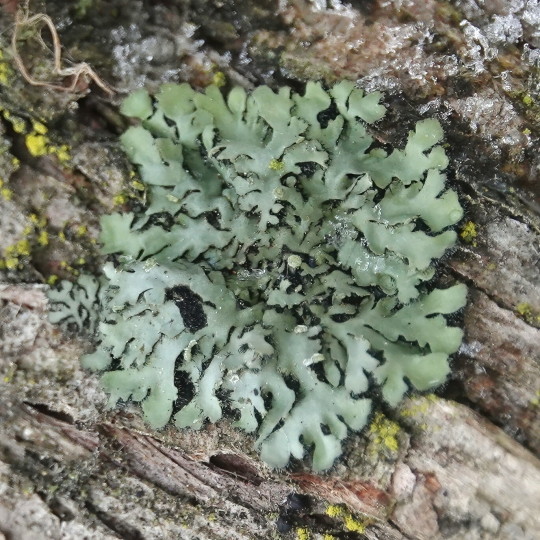
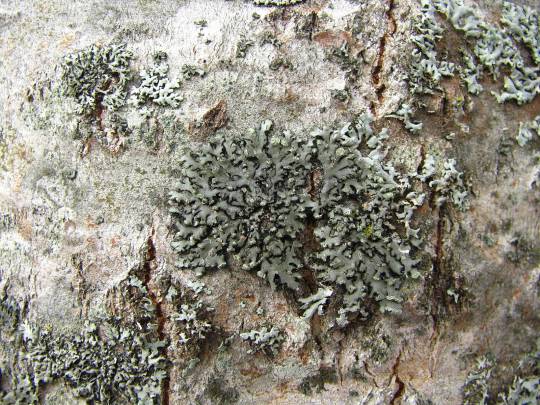
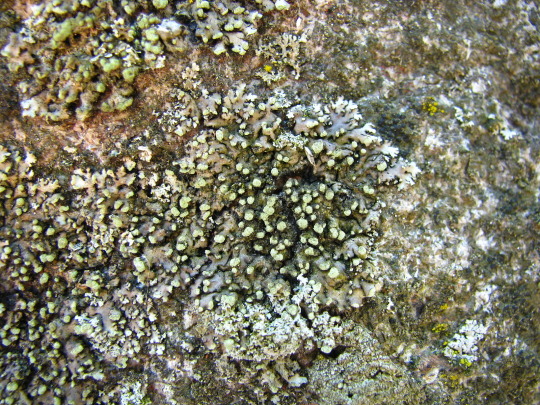
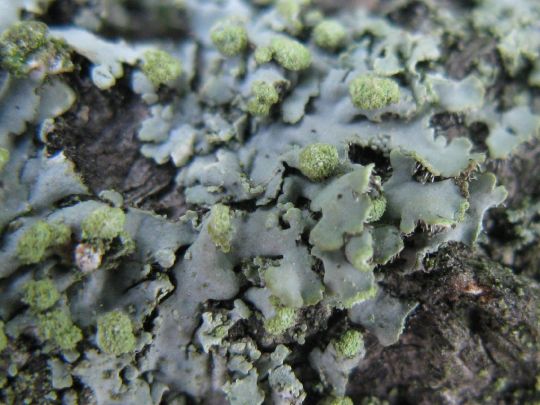

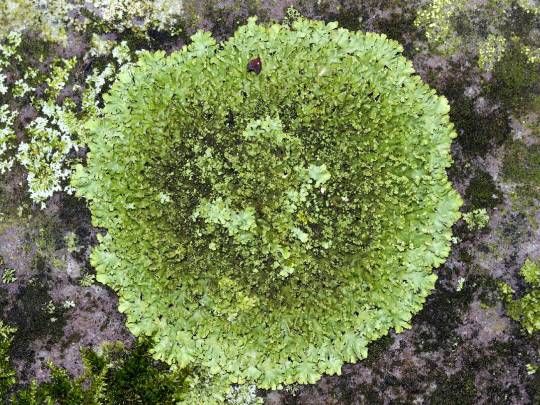
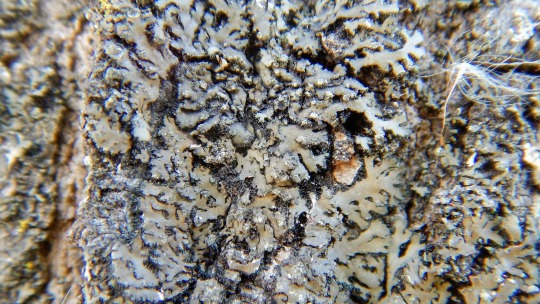
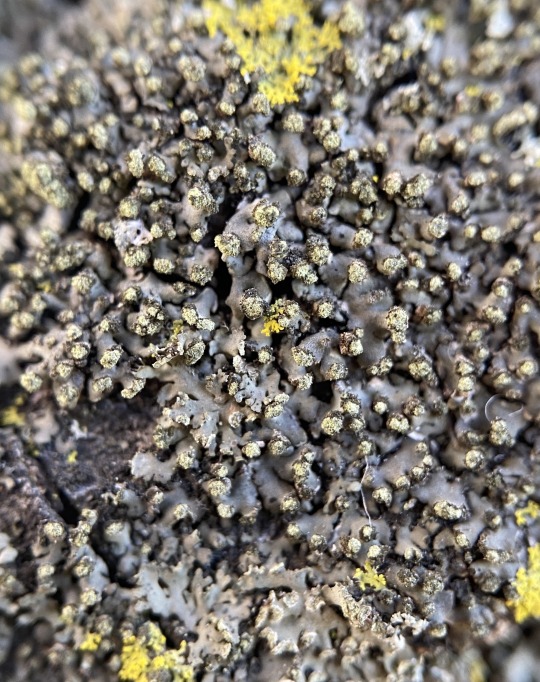
Phaeophyscia pusilloides
Pompom shadow lichen
This foliose lichen grows in rounded rosettes up to 3 cm in diameter. It has narrow, elongated lobes closely attached to the substrate. The upper surface is gray-brown when dry, and bright green when wet! And the lower surface is black with long, simple rhizines. It produces powdery soredia from capitate or labriform soralia on the lobe tips. It only rarely produces apothecia, which have a rhizinate margin and a brown disc. It has a green algal photobiont. P. pusilloides grows on nutrient-enriched, deciduous trees in temperate, montane valleys in North America and Europe.
images: source | source
info: source | source
#lichen#lichens#lichenology#lichenologist#mycology#ecology#biology#fungi#fungus#symbiosis#symbiotic organisms#algae#Phaeophyscia pusilloides#Phaeophyscia#I'm lichen it#lichen a day#daily lichen post#lichen subscribe#trypo#trypophobia#life science#environmental science#natural science#nature#naturalist#beautiful nature#weird nature#the natural world
37 notes
·
View notes
Text
April 24, 2024 - The father of a student protester for Palestine eloquently explains why he is out in the streets to support the students. [video]
#usc#free palestine#palestine#solidarity#video#los angeles#usa#students#student protest#2024#genocide#occupation#acab
139 notes
·
View notes
Photo

#anarchism#anarchist#antifascist#anticapitalist#anticapitalism#antifascism#anarchopunk#anarchocommunism#antifascista#anti fascist#anti fascism#anti-fascist#anti-fascism#anti-capitalist#anti capitalist#anti-capitalism#anti capitalism#anarcho communism#anarcho-communism#anarcho-communist#anarcho communist
11 notes
·
View notes
Text
Report from within the Cal Poly Humboldt Building Occupation
https://crimethinc.com/SiemensHall
On April 22, 2024, students at Cal Poly Humboldt campus in Arcata, California occupied a building in solidarity with Palestinians, precipitating a showdown with police from throughout the region. After a six-hour standoff, the police were compelled to withdraw from campus.
In this report, participants in the occupation describe what took place and what they learned.
306 notes
·
View notes
Text

"I’m personally a Holocaust survivor as an infant, I barely survived.
My grandparents were killed in Aushwitz and most of my extended family were killed.
I became a Zionist; this dream of the Jewish people resurrected in their historical homeland and the barbed wire of Aushwitz being replaced by the boundaries of a Jewish state with a powerful army…and then I found out that it wasn’t exactly like that, that in order to make this Jewish dream a reality we had to visit a nightmare on the local population.
There’s no way you could have ever created a Jewish state without oppressing and expelling the local population. Jewish Israeli historians have shown without a doubt that the expulsion of Palestinians was persistent, pervasive, cruel, murderous and with deliberate intent - that’s what’s called the 'Nakba' in Arabic; the 'disaster' or the 'catastrophe'.
There’s a law that you cannot deny the Holocaust, but in Israel you’re not allowed to mention the Nakba, even though it’s at the very basis of the foundation of Israel.
I visited the Occupied Territories (West Bank) during the first intifada. I cried every day for two weeks at what I saw; the brutality of the occupation, the petty harassment, the murderousness of it, the cutting down of Palestinian olive groves, the denial of water rights, the humiliations...and this went on, and now it’s much worse than it was then. It’s the longest ethnic cleansing operation in the 20th and 21st century.
I could land in Tel Aviv tomorrow and demand citizenship but my Palestinian friend in Vancouver, who was born in Jerusalem, can’t even visit! So then you have these miserable people packed into this, horrible…people call it an 'outdoor prison', which is what it is. You don’t have to support Hamas policies to stand up for Palestinian rights, that’s a complete falsity.
You think the worse thing you can say about Hamas, multiply it by a thousand times, and it still will not meet the Israeli repression and killing and dispossession of Palestinians.
And 'anybody who criticises Israel is an anti-Semite' is simply an egregious attempt to intimidate good non-Jews who are willing to stand up for what is true."
44K notes
·
View notes
Text
Christina Bobb is the lawyer overseeing the RNC's "election integrity" efforts. She was also just indicted by a grand jury for election-related crimes.
44 notes
·
View notes
Text
Brussels has sent Turkey billions of euros to provide for migrants and refugees who would otherwise cross into the EU. But it's not clear how the money is being spent.
European Union auditors said on Wednesday that they are unable to establish whether some of the billions of euros the bloc has given to Turkey to help it cope with Syrian refugees is actually having any impact.
Under a deal concluded between EU leaders and Turkey in 2016, the bloc committed to provide at least €6 billion to Turkey to help it cope with migrants crossing in from Syria. Turkey in turn committed to stop migrants leaving its territory for Europe.
In March 2016, a month after the deal came into effect, Turkey's government said the number of migrants crossing illegally into Greece had dropped from around 6,000 per day in November 2015 to about 130 daily.
In 2021, the leaders announced plans to send a further €3 billion for refugees in Turkey. The pact, which was hailed in Europe as a great success, served as a template for other more recent and elaborate deals with Tunisia and Egypt.
Money from the agreement is used to supply cash cards to some of the more than 4 million registered refugees in Turkey, as well as to improve education and health, to help people to better integrate into society and to build facilities that people fleeing the war in Syria might need.
But the European Court of Auditors, or ECA, in a follow-up last year on whether the money was being used effectively, said that Turkey's education ministry had refused to provide information that might allow them to assess what impact EU projects are having.
continue reading

I can't understand why Greece and Türkiye are always at each other's throats when they have so much in common, in this case how EU funds intended for one purpose are used for another. Türkiye, however, has the EU over a barrel, a position achieved by skirting your responsibility and outsourcing your perceived problem.
#eu#türkiye#eu migrant funds#no insight in use#misuse of eu funds#fortress europe#immigration and asylum
1 note
·
View note
Text
The Netherlands can technically achieve and afford its goal of being completely climate-neutral by 2050. However, the feasibility depends on the timely implementation of planned measures, including controversial ones like CO2 storage, livestock shrinkage, and biofuels, the Netherlands Environmental Assessment Agency (PBL) said in a new report.
Working with thousands of pages of background reports, the PBL calculated over 30 routes to becoming climate-neutral in all major sectors. It looked at which scenarios are the most cost-effective against how large the changes in production and consumption would have to be.
“It is a huge task,” PBL director Marko Hekkert told NOS. “We only have 25 years left to achieve this. Any delay will make it extremely expensive or impossible. So the main thing now is to persevere—we have already seen the urgency in recent years.”
Achieving the climate-neutral goal is not only possible but affordable. “These are not astronomical amounts. It is mainly a transition that we have to go through. That requires large investments and fair distribution, but does not entail high net costs,” said Bart Streners, lead author of the report.
To achieve the goal, the Netherlands will have to produce at least three to five times more electricity than it does now, and it must come from renewable sources. That extra electricity will enable road traffic, heating, and the industry to stop using fossil fuels. Hydrogen can absorb peaks in electricity demand. The Netherlands will have to produce most of its hydrogen itself. Achieving that in time will require serious planning and parallel investments so that no one is waiting for progress elsewhere, the PBL said.
continue reading
The political will need to be there and if the Netherlands gets a (far) right wing cabinet then a lot of that will be lacking.
4 notes
·
View notes
Text
The plants slowly choke to death, wither and dry out. They die en masse, leaves dropping and bark turning grey, creating a sea of monochrome. Since scientists first discovered Xylella fastidiosa in 2013 in Puglia, Italy, it has killed a third of the region’s 60 million olive trees – which once produced almost half of Italy’s olive oil – many of which were centuries old. Farms stopped producing, olive mills went bankrupt and tourists avoided the area. With no known cure, the bacterium has already caused damage costing about €1bn.
“The greatest part of the territory was completely destroyed,” says Donato Boscia, a plant virologist and head researcher on Xylella at the Institute for Sustainable Plant Protection in Bari.
A decade later, far from nearing resolution, the threat to European plants from Xylella and other diseases is only growing: in February 2024, Puglia scientists found another Xylella subspecies, which had annihilated US vineyards and never previously been detected in Italy. For many farmers, scientists and regulators, the disease is emblematic of a far broader problem: the EU’s difficulty curtailing the introduction of devastating new plant diseases, despite regulatory efforts over the past decade. New data, released to the Guardian, shows that dozens of newly introduced disease outbreaks are detected in the EU every year, even as farmers and scientists struggle to contain previously introduced pathogens. As the climate heats, scientists warn the problem will get worse.
Across the EU, data shows, outbreaks of newly introduced plant disease have continued unabated at an average rate of 70 a year between 2015 and 2020, despite regulations introduced to stop their spread in 2016. While a number of member states have taken steps to prevent and curb the outbreaks, scientists, plant epidemiologists and agronomists say it is still insufficient.
“I can’t understand how, after Xylella, we learned almost nothing,” says Pierfederico La Notte, an Italian plant epidemiologist.
continue reading
1 note
·
View note
Text
Within the last century, researchers’ understanding of genetics has undergone a profound transformation.
Genes, regions of DNA that are largely responsible for our physical characteristics, were considered unchanging under the original model of genetics pioneered by biologist Gregor Mendel in 1865. That is, genes were thought to be largely unaffected by a person’s environment.
The emergence of the field of epigenetics in 1942 shattered this notion.
Epigenetics refers to shifts in gene expression that occur without changes to the DNA sequence. Some epigenetic changes are an aspect of cell function, such as those associated with aging.
However, environmental factors also affect the functions of genes, meaning people’s behaviors affect their genetics. For instance, identical twins develop from a single fertilized egg, and as a result, they share the same genetic makeup. However, as the twins age, their appearances may differ due to distinct environmental exposures. One twin may eat a healthy balanced diet, whereas the other may eat an unhealthy diet, resulting in differences in the expression of their genes that play a role in obesity, helping the former twin have lower body fat percentage.
People don’t have much control over some of these factors, such as air quality. Other factors, though, are more in a person’s control: physical activity, smoking, stress, drug use and exposure to pollution, such as that coming from plastics, pesticides and burning fossil fuels, including car exhaust.
Another factor is nutrition, which has given rise to the subfield of nutritional epigenetics. This discipline is concerned with the notions that “you are what you eat” – and “you are what your grandmother ate.” In short, nutritional epigenetics is the study of how your diet, and the diet of your parents and grandparents,
affects your genes. As the dietary choices a person makes today affects the genetics of their future children, epigenetics may provide motivation for making better dietary choices.
Two of us work in the epigenetics field. The other studies how diet and lifestyle choices can help keep people healthy. Our research team is comprised of fathers, so our work in this field only enhances our already intimate familiarity with the transformative power of parenthood.
continue reading
0 notes


